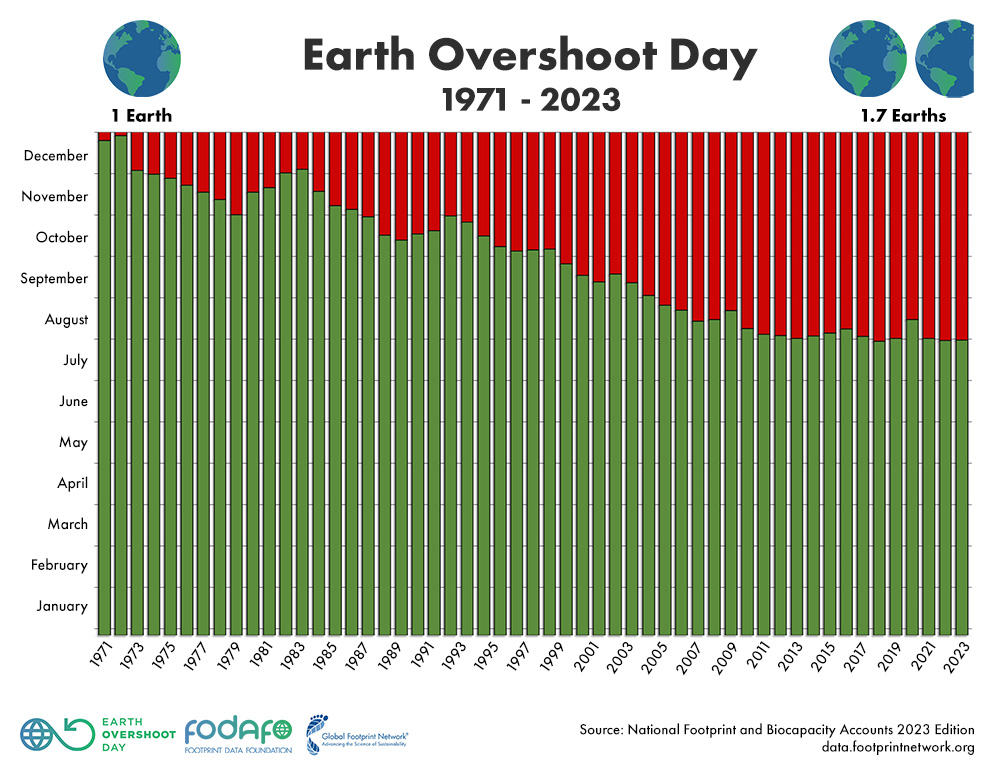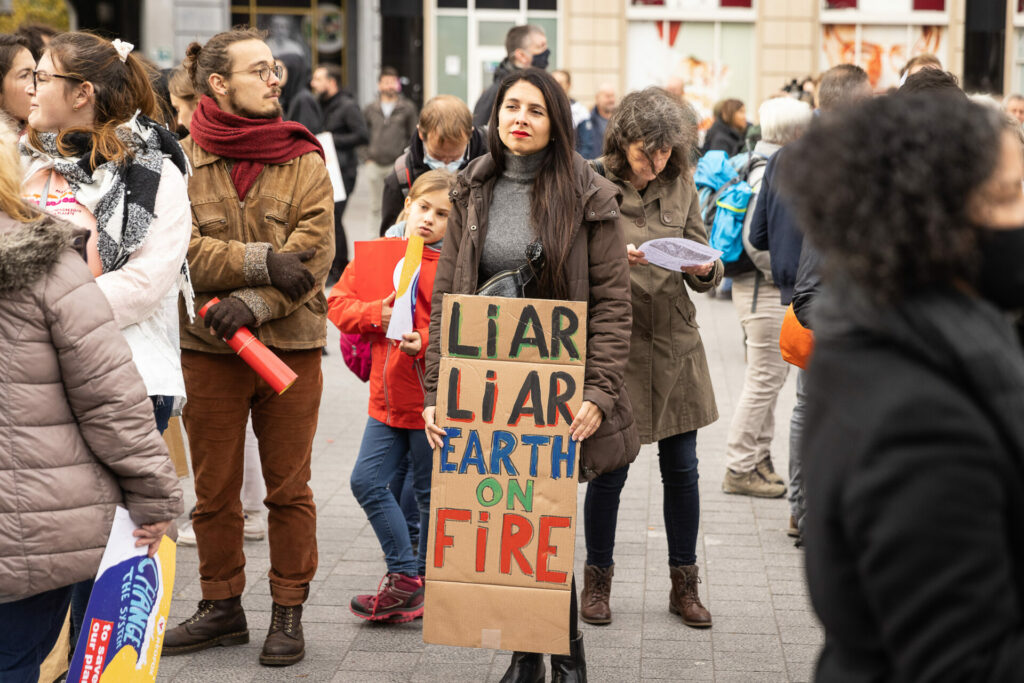Earth Overshoot Day, the symbolic date when humans have used up all the natural resources the earth can produce in a year, will take place barely eight months into this year.
From 2 August, humanity's demand for natural resources will have exceeded what the Earth can generate in a year's time. People are therefore, from this date onwards, living on 'credit'. If people continue to consume at this global pace, 1.7 planets will be needed to cover the demand, World Wildlife Fund (WWF) Belgium reported on Tuesday.
"If the earth is an apple tree, we are not just eating the apples, we are essentially cutting down the whole tree," Koen Stuyck, climate and footprint policy officer at WWF Belgium, said. "We are exceeding the limits of our planet and it is not sustainable."

How Earth Overshoot Day has changed over the last 50 years. Credit: EOD
While the average has plateaued in recent years (the day has taken place around the start of August for several years now, excluding 2019 when it fell in mid-August), it now usually comes more than 1.5 months earlier than it did at the turn of the century.
"It is difficult to say whether this plateau is due to a slowdown in the economy or conscious efforts to decarbonise our emissions," Stuyck added.
Feeling the effects
Last year, the day fell slightly earlier on 28 July. However, the ecological footprint metrics from every year since the world entered an ecological overshoot in the early 1970s are recalculated annually based on the latest reported and newly integrated data.
The new dates integrated into this year's calculation show that there are actually not five days between last year and this year, but less than one day, moving the last Earth Overshoot Day to 1 August.
Belgium experienced Earth Overshoot Day on 26 March, with the country finishing among the worst countries in the world and scoring worse than neighbouring countries such as the Netherlands, France and Germany.
"If the whole world consumed like the Belgians, we would need no fewer than 4.1 Earths," Stuyck said. "Every year we use more natural resources than our planet can generate, and this has consequences."
These consequences are becoming more apparent: from the recent extreme heat, contributing to desertification and wildfires, to water shortages and floods which are increasingly claiming the lives of people worldwide. This is also leading to reduced productivity of arable land and soil erosion. "In time, our food production may also be at risk," Stuyck warned.
Related News
- Brussels energy-saving measures cut gas consumption by 19%
- In pictures: Names of flood victims projected on Brussels buildings
To meet the United Nations IPCC target (to reduce carbon emissions globally by 43% by 2030 compared to 2010), Earth Overshoot Day needs to be delayed by up to 19 days every year for the next seven years.
Stuyck stressed that while this may sound ambitious, this would be attainable if the use of low-carbon electricity sources would be scaled up globally from 39% to 75%. "This would already move Earth Overshoot Day up by 26 days. Halving food waste would give us another 13 days."
Aside from structurally reducing ecological footprints, drastic investment in nature restoration is also needed. "This way, we not only protect ourselves from the effects of climate change but also make life healthier and more pleasant."

